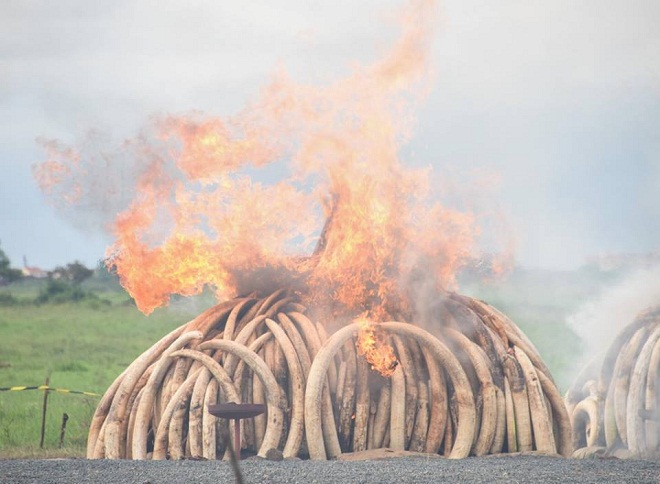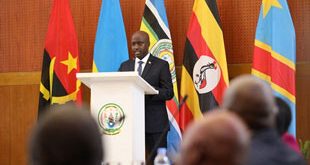
Mombasa, Kenya | AFP |
A Kenyan court sentenced an ivory trafficking “kingpin” to 20 years in jail Friday, a symbolically heavy penalty in a nation where major poachers are rarely punished.
Feisal Mohamed Ali, a Kenyan national, must be made an “example (of) for those behind the poaching menace in the country,” magistrate Diana Mochache said at the sentencing in Kenya’s second city Mombasa.
Prosecutors presented Ali as the head of an organised crime network that spanned African wildlife parks and buyers in Asia, the primary destination for poached ivory.
Investigators believe he benefitted from the protection of high-placed officials in east Africa.
He was arrested in Tanzania in 2014 in connection with two tonnes of ivory — 228 whole tusks and 74 pieces — found in a Mombasa warehouse. Authorities put the value of the ivory at $4.2 million (3.8 million euros).
Africa is home to between 450,000 to 500,000 elephants, but more than 30,000 are killed every year on the continent to satisfy demand for ivory in Asia, where tusks sell for around $1,000 (800 euros) a kilo (2.2 pounds).
Kenya carried out the largest-ever torching of ivory in April, including 105 tonnes from thousands of dead elephants, in a grand gesture aimed at shocking the world into stopping the slaughter of the animals.
Environmental activists saw Ali’s case as a test of Kenya’s will to take on the poaching that is decimating Africa’s elephant and rhinoceros populations.
Kenya has been trying to boost prosecution efforts, but in a country plagued by corruption, the conviction of key figures involved in poaching and smuggling remains rare.
Kenya Wildlife Service cheered the “landmark” judgement against a “kingpin” saying it sent a strong message “that Kenya will not watch as its elephant population is decimated.”
Ali denied all the accusations and one of his defence lawyers said he would appeal the verdict, which includes a fine of 20 million shillings (180,000 euros).
“We are shocked about this ruling which clearly contravenes the constitution,” said lawyer Gikandi Ngibuini.
“We will appeal in the High Court to challenge the sentence. We had anticipated a fair sentence but not 20 years.”
 The Independent Uganda: You get the Truth we Pay the Price
The Independent Uganda: You get the Truth we Pay the Price



